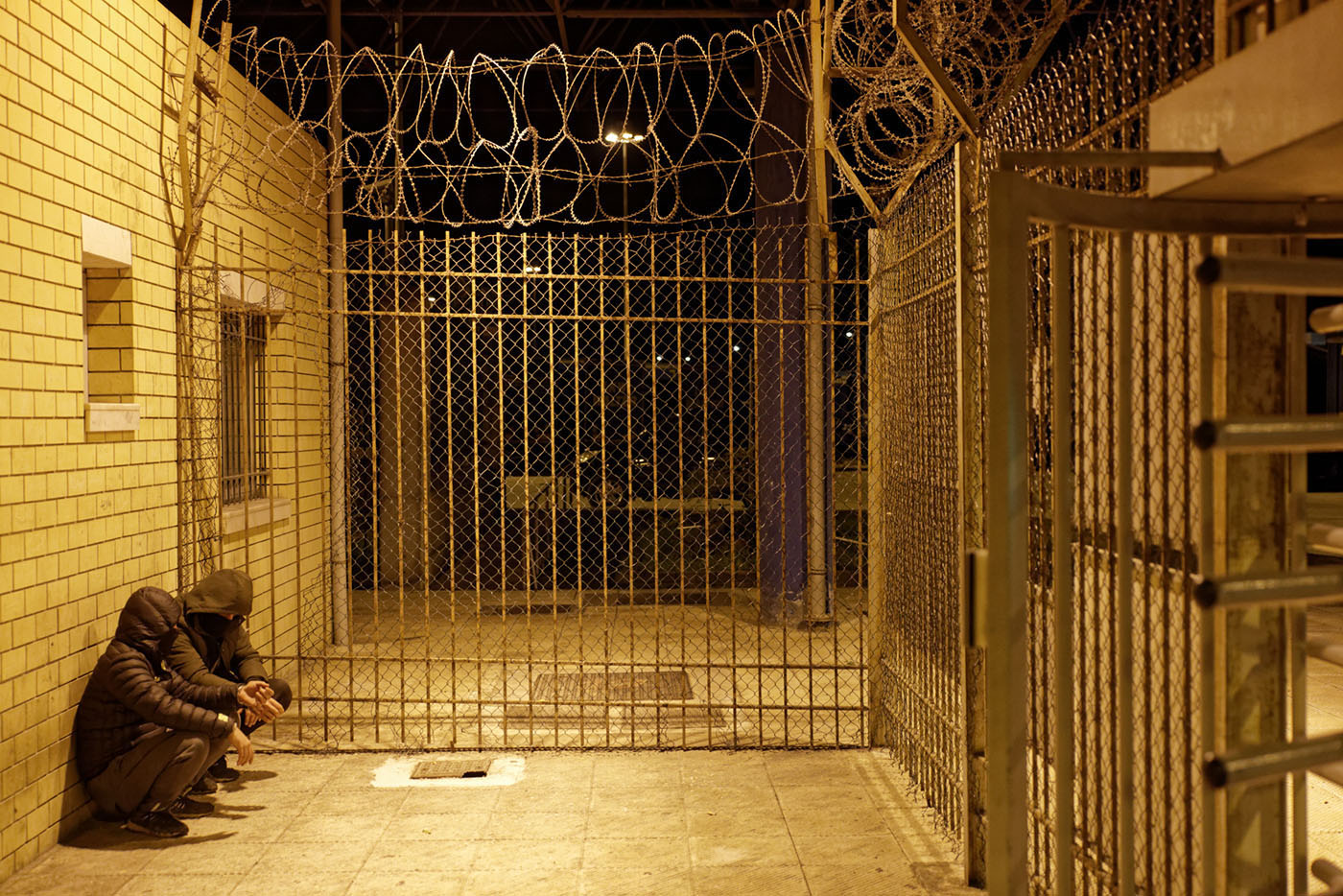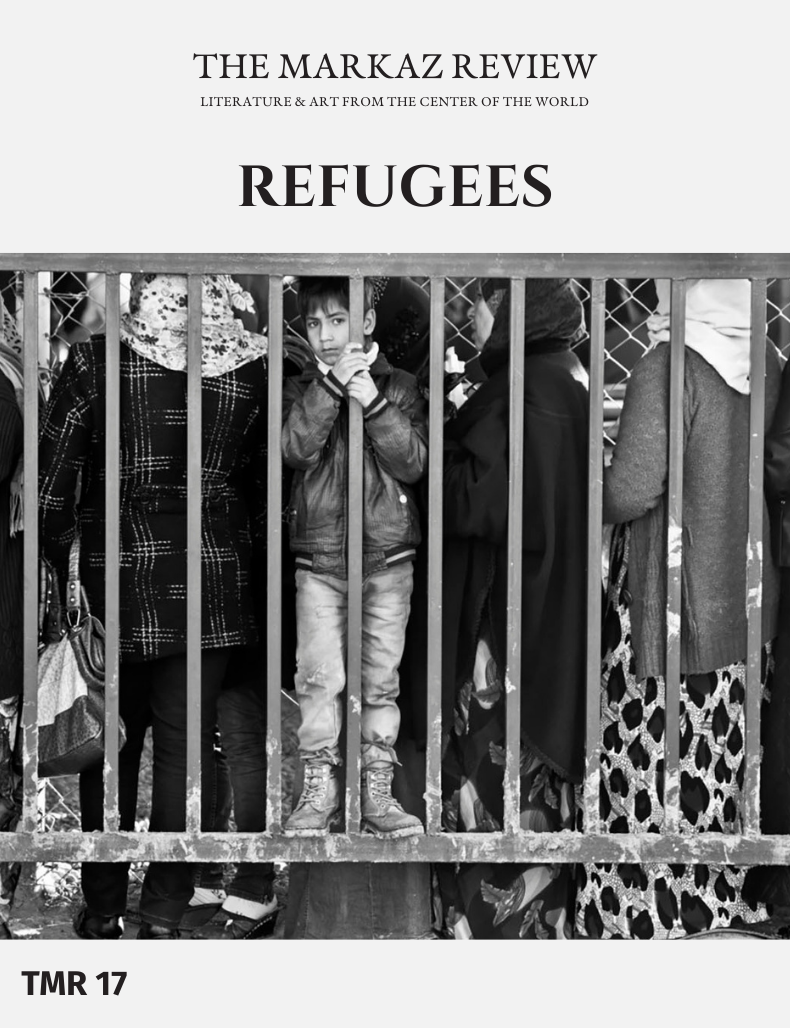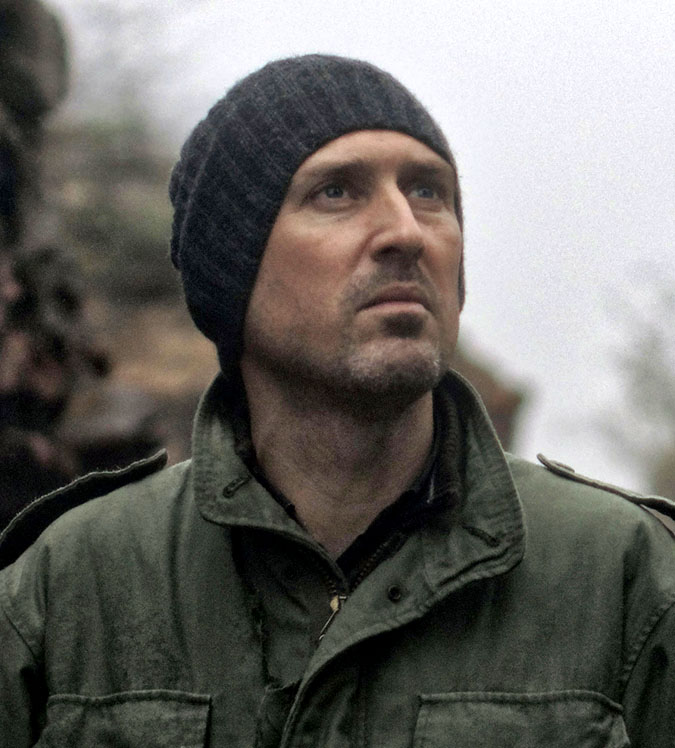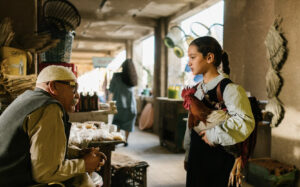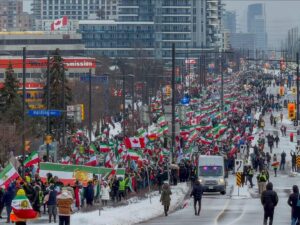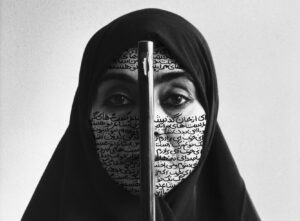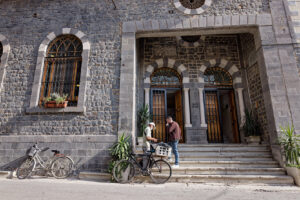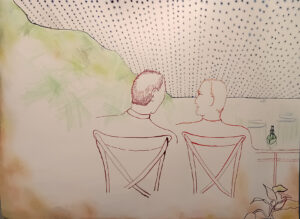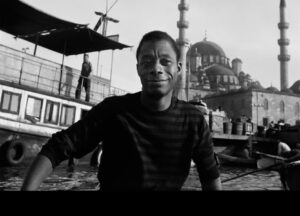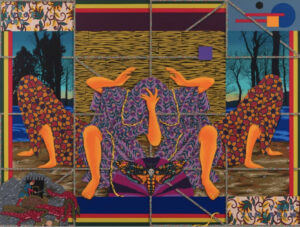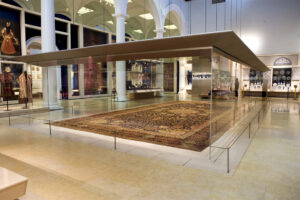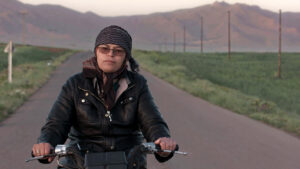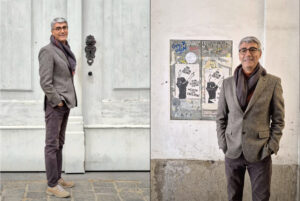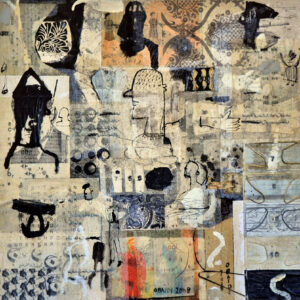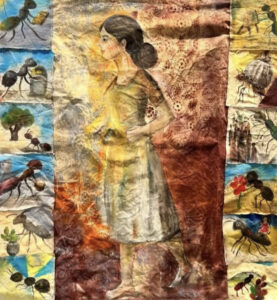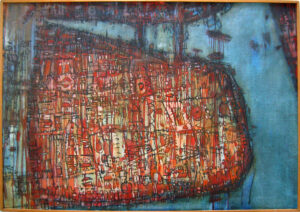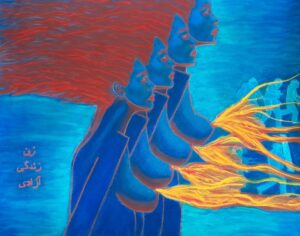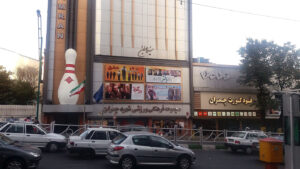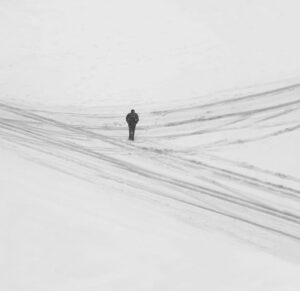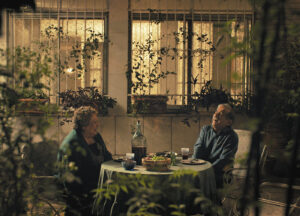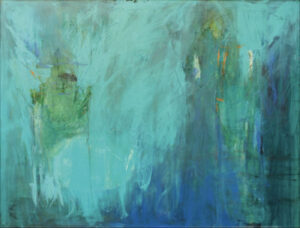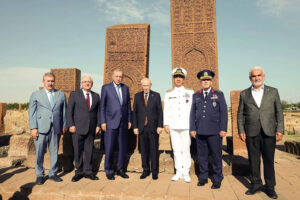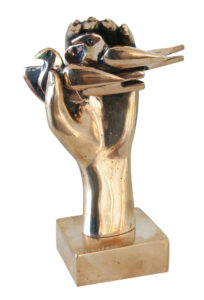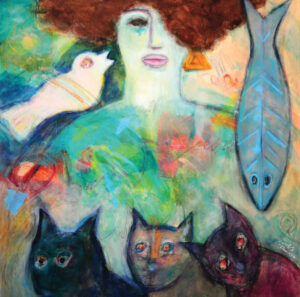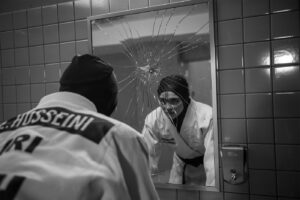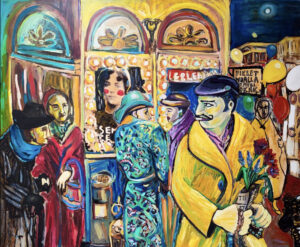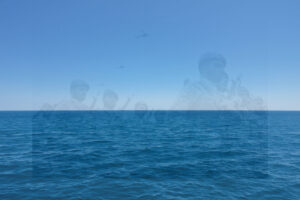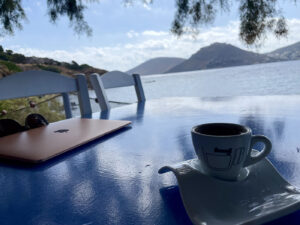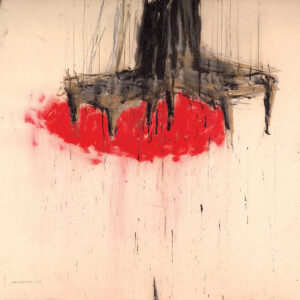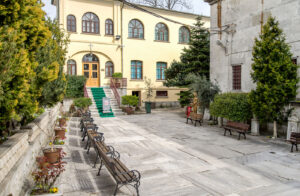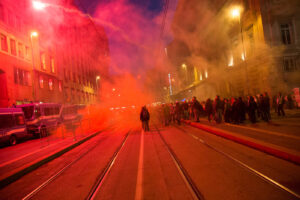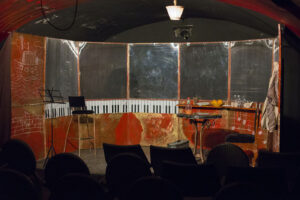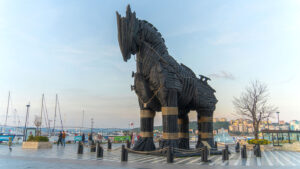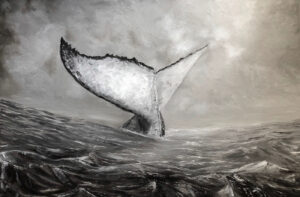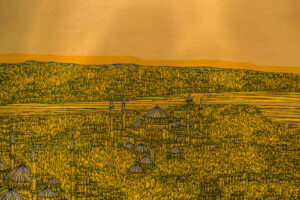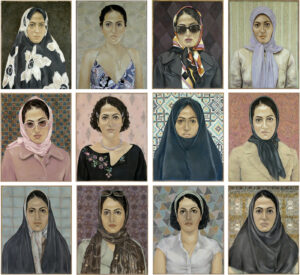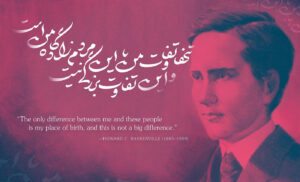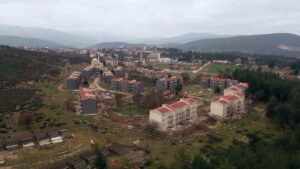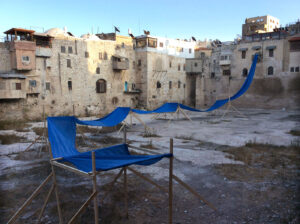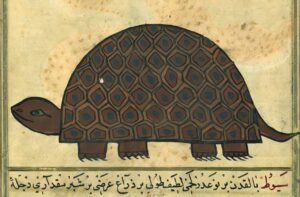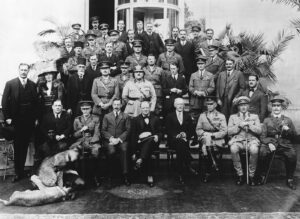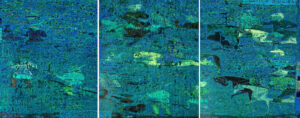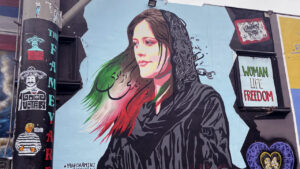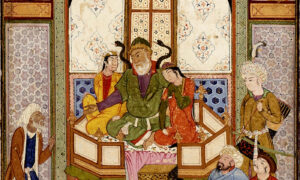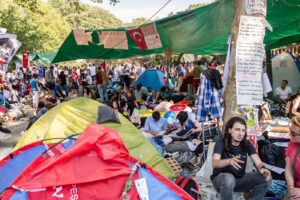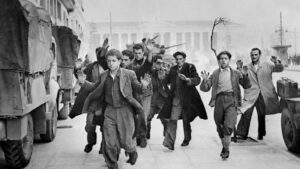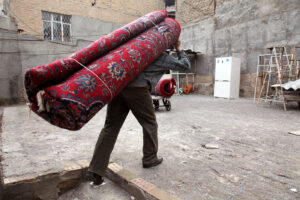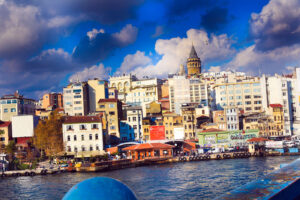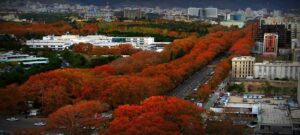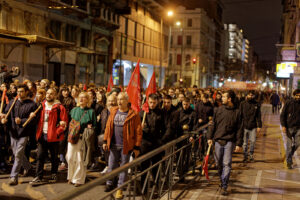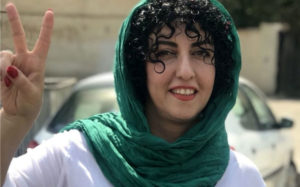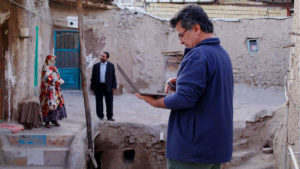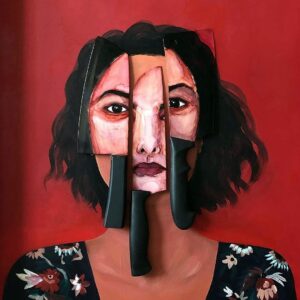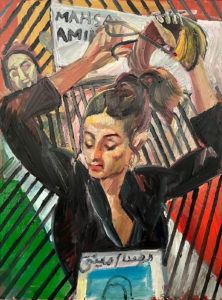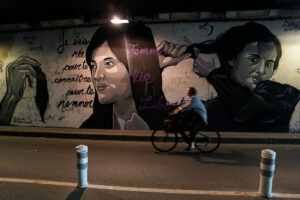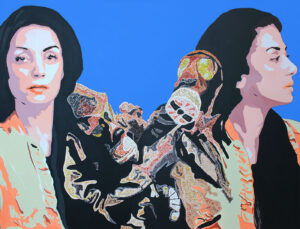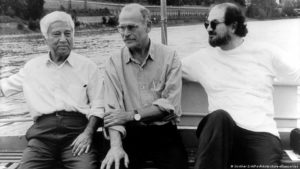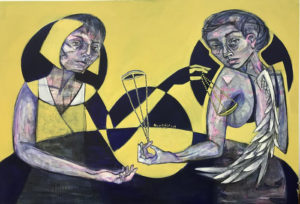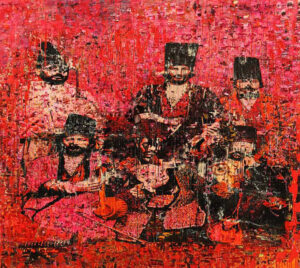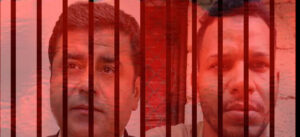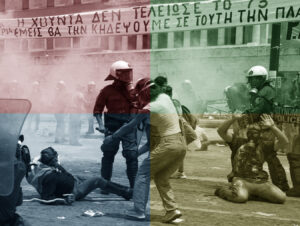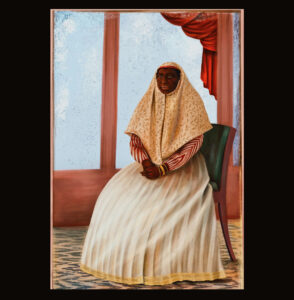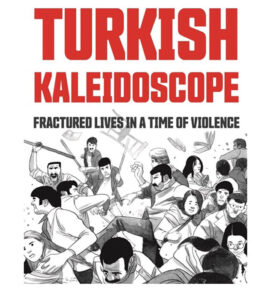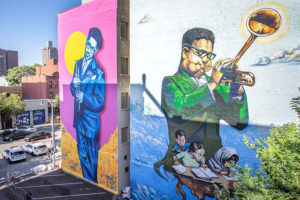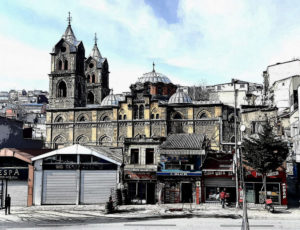From armed struggle on the mountains of the Iran-Iraq border to sneaking onto trucks in a port on the European periphery, a Kurdish guerrilla's efforts to change his fate collide with Fortress Europe.
Τhe rain hasn’t stopped for two weeks: snow coats the higher peaks of the Pindos mountain range; huge quantities of water sleet from the sky to flood the fields. Just above the port of Igoumenitsa, smoke rises from a soaked, thickly-wooded hill. At its foot lies a waterlogged cemetery, and a ribbon of highway — backed up with trucks waiting to enter the port — is all that separates the port’s high walls from the forest’s denizens.
As the setting sun drags its light from the city into the sea, gaunt figures emerge from the undergrowth to eyeball the port. They are here, on Greece’s northwesternmost edge, to play the Game, a high-stakes effort at smuggling themselves onto boats heading to Italy. Success means arrival at the Italian ports of Bari and Brindisi, from where it is a home stretch through uninterrupted Schengen territory to a northern European country. Failure entails discovery and a few days of detention or — worse — grievous bodily damage should the joyriders lose their grip on the truck’s axle, or be crushed by driving vibrations.
Bahoz is standing at the edge of the treeline, scanning the port below for tree-cover and weak points in the chain link fence topped with loops of barbed wire. Three weeks ago, he left another mountain range, on the Iranian-Iraqi border, on which he lived and fought the Islamic Republic of Iran for three years as a guerrilla for Komala, a revolutionary Kurdish party.
Bahoz was guaranteed hardship at birth. Descended from a village outside the Kurdish-majority city of Marivan, in one of Iran’s most underdeveloped and conflict-ridden regions, his scant options in life boiled down to submitting to local mores and getting a humble farming job, or becoming a smuggler of electrical products and alcohol across the snowy passes of the inhospitable border with Iraq. But his father (“one of the two most influential people in my life”) introduced him to Foad Mostafa Soltani, a Marxist revolutionary and the founder of Komala, whose teachings developed his political conscience and eventually prompted him to join the guerrillas in the mountains.
“Up on the mountain I’ve been bombarded, fought, and faced the Islamic Republic’s bullets, so I’m used to hardship and surviving on little,” he said. “But at some point I realized that there was a greater game being played above our heads, and that we were just the pawns, and we wouldn’t get anywhere however much we struggled.”
Dismay prompted him to consider leaving the guerrillas and joining the brotherhood of migrants crossing borders in search of a better life. Penniless, and coming from a collapsed economy under massive sanctions pressure, Bahoz made it across Turkey, over the Evros river into Greece, and to this rough frontier port carved out of the mountains where human, drugs and arms smuggling networks intersect with trade and tourism. A Kurdish smuggling ring currently controls the vantage point over the port. It earned its dominance (and associated revenues) through a bloody 2018 battle against Afghan and Syrians that yielded two dead. Now, Kurdish migrants consider Igoumenitsa a friendly port, while other nationalities direct themselves to Patra, Greece’s other western port.
Under the trees’ thick cover, about twenty migrants gather around smoky fires, brewing tea and biding their time till dusk. Those with some money fortify themselves with sandwiches and pizzas, which local businesses know to deliver to the cemetery at the foot of the hill. Those without cash limit themselves to eating once every two days, or gnawing away at potatoes.
Khalo is the boss, a rotund-but-agile Kurdish man in his fifties, with a vast self-regard and a tendency to snap easily. He orders his migrant charges around, and bullies or beats them when they get out of order. He has represented the smuggling network on the hill for seven years, and claims his work getting migrants onto boats feeds four children in Arbil. The Greek security services know him, and depend on him to keep the hill in order.
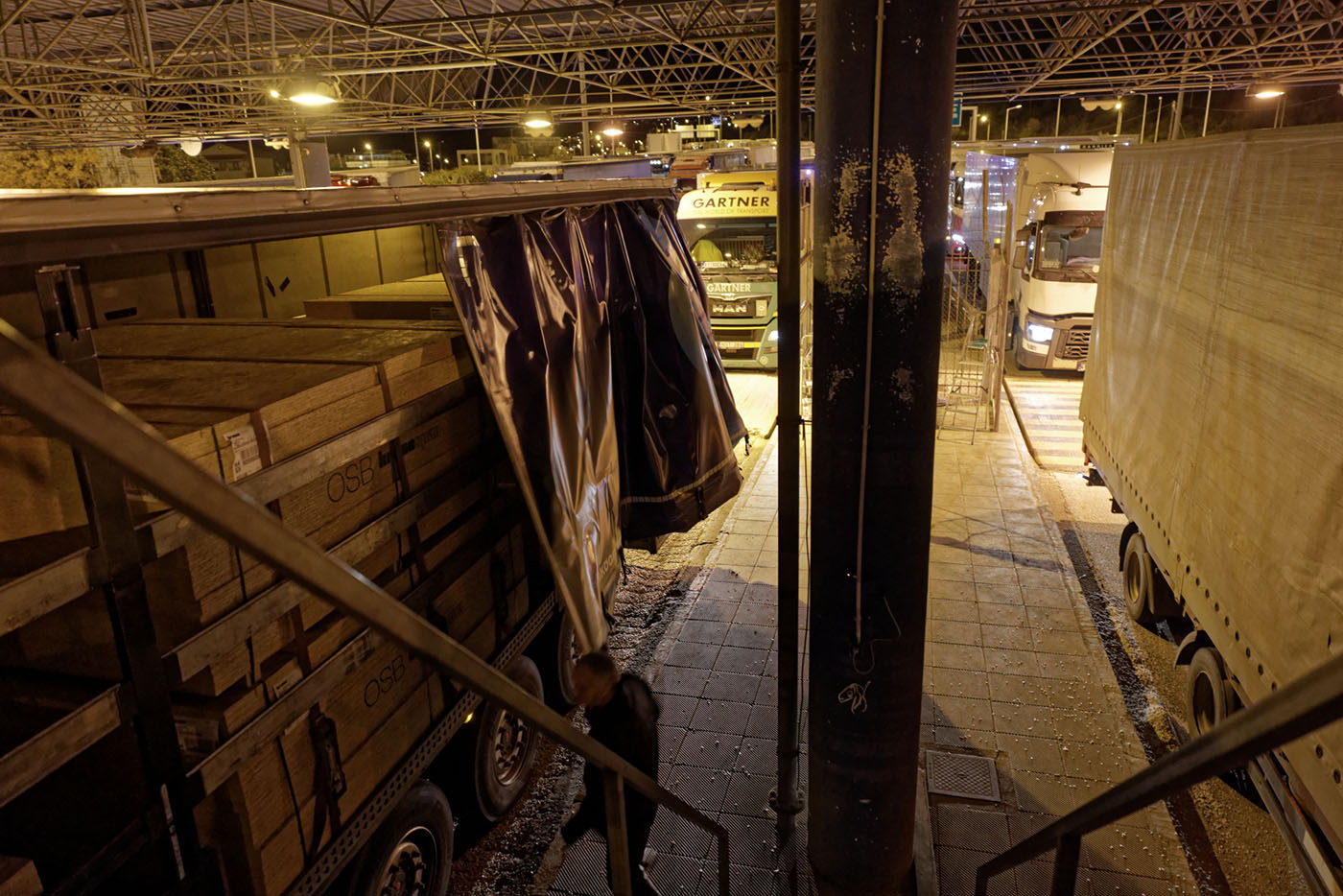
The game
Once darkness settles, Bahoz heads down through the trees to the trucks backed up on the highway. Khalo and his partners are already running around, opening truck doors and stuffing in their migrant clients. Spotters for the smuggling network are spread throughout town, probing the port security’s weak points. One of them is an Afghan huddled in a cluster of trees abutting the rig-littered carpark. He informs a puffing Khalo how many port workers are out patrolling and where.
There are also Turkish, Romanian and Greek truck drivers in the carpark, clustered in inebriated, sometimes aggressive groups. They refer to the migrants as “Talibans” and relish confronting them and banishing them from their trucks. The migrants, fearful of being beaten or stoned, avoid the drivers and bide their time, waiting for the police inspection to finish.
Bahoz wants to avoid the inspection area, which involves an almost insurmountable series of obstacles. The police open truck after truck, searching each with dogs, flashlights and even an X-ray truck whose rays penetrate through walls and contents to betray the best-hidden migrants. Bahoz knows to bide his time till the inspected trucks are driven onto the ship, then vault the barbed wire-topped chainlink fence, and rush a truck preparing to board the boat without being noticed.
Midnight finds Bahoz crawling through a secret tunnel running with seawater. By 1 a.m. he has hauled himself up onto the tower of a dark construction site abutting the light-flooded port. Police cars and a couple of sniffer-dogs are patrolling the port side. Chances of clearing the fence and making it onto the boat undetected are slim. But the risk of discovery is also not prohibitive, beyond a few hours or days spent in detention. The worst the police usually does is to round up a group, drive them 30km or so into the Greek countryside, and release them there in what the migrants describe as “being deported.” Sometimes their mobile phones aren’t returned, setting up a tiring, mapless hike back to their hill in Igoumenitsa. But almost always this is not enough to discourage them from taking another crack at the Game.
By midnight, the police have caught half a dozen migrants, among them Bahoz, hiding inside a dry-cleaning van. By this point, his face is so familiar that he is simply led to a fenced enclosure and left unhandcuffed to await the police van that will take him to the station.
“Even if I’m caught, I’ll continue trying to get to the other side,” he says, his adrenaline driving him to manically pace the enclosure, “by sea or by land, again and again and again and again.”
Bahoz is released a few hours later and reascends the hill, back to his sleeping bag, some clothes, and the group of comrades who didn’t make it to the other side tonight.
“We’re not defeated people who should be pitied, but fighters,” Bahoz later told me in a series of voice messages. “We struggle in the way of achieving a better life; this doesn’t make us pitiable creatures.”
Nevertheless, things are deteriorating. After racking up several failed attempts, Bahoz falls and twists his ankle. Simultaneously, another group on the Hill fights with his group, and he loses most of his money. His comrades carry him to an exposed kiosque by the port, where he seeks to recuperate his strength.
As Christmas nears, the trucks lessen, even as his foot doesn’t improve. Up on the hill, the migrants shiver around their fires, waiting for the traffic to pick up again. It increasingly looks like Bahoz will have to seek shelter, so he retreats to the cement megalopolis of Athens in search of a roof, and a vagrant condition beset by new threats. He will bide his time … “before I can play the Game again.”
Epilogue
A few weeks after Christmas, I meet up with Bahoz in Kypseli, where he is staying in the dilapidated house of a Kurdish friend of a friend, who passed through the city on his way west a few months ago. Bahoz’s foot had healed, but his face is gaunt and he walks the streets gingerly, shivering in his open slippers and worried that the police might stop him. A lover of history, he feels privileged to be in Athens, but hasn’t even glimpsed the Acropolis from a distance. Although some of his comrades managed to reach Italy, Igoumenitsa, and the prospect of making it through on a truck, seem distant.



